Postpublished at 13:01 GMT 20 January 2015
The World at One tweets, external And on #BBCDemocracyDay @colemancr finds out how to crowdsource a constitution, with @LSEPubAffairs #wato
20 January 2015 marks the 750th anniversary of the first parliament of elected representatives at Westminster, the de Montfort Parliament
50 years earlier Magna Carta - or the Great Charter - was sealed by King John in 1215 and established for the first time that everyone, including him, was subject to law
The BBC is broadcasting a day of live events, discussion and debate broadcast from inside Westminster and the BBC Radio Theatre
Highlights include an interview with the inventor of the World Wide Web, Sir Tim Berners Lee; live streaming of BBC News meetings; and panel debates from inside the Radio Theatre
Democracy Day is produced in collaboration with the House of Commons and the House of Lords
Anna Browning, Holly Wallis, Laurence Peter, Alison Daye and Paul Harrison
The World at One tweets, external And on #BBCDemocracyDay @colemancr finds out how to crowdsource a constitution, with @LSEPubAffairs #wato
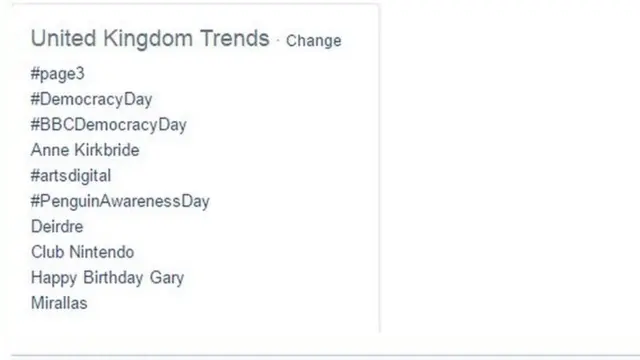
And we're moving on up! #DemocracyDay and #BBCDemocracyDay are climbing the UK trending chart on Twitter.
Harriet Green, tweets, external: The suffragettes gave me the vote by throwing themselves under a horse. We must keep democracy alive. #BBCDemocracyDay
Our next live debate is called Islam and Democracy - at 13:00 GMT in the BBC Radio Theatre. Watch the live webcast on this live page, or you can listen on World Service radio. (On iPlayer here: http://www.bbc.co.uk/worldserviceradio) The discussion is chaired by Shaimaa Khalil (On Twitter - @Shaimaakhalil).
Wazeer Murtala from Lagos, Nigeria, emails: The emphasis should be on the rule of law as the most pivotal elements of democracy. Our democratic institutions are weak; the Executive still exert influence on the judiciary, the police force can be easily influenced and, to say the truth, some top guns are above the law. Our democracy has failed us so far, but we are still optimistic. It is the only alternative. With some amendments, we'll get it right...
.
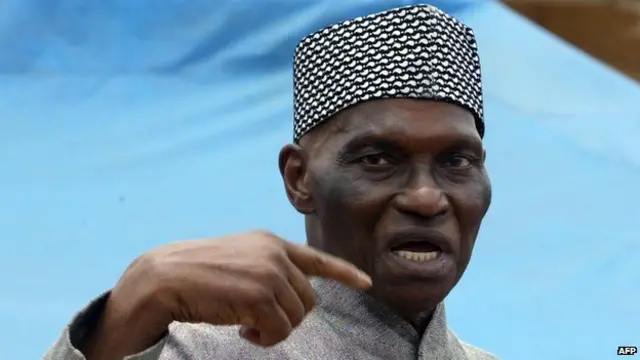 Image source, AFP
Image source, AFPFormer Senegal President Abdoulaye Wade
Some African leaders try to cling on to power, but others have been forced out through popular protests. The BBC's Maud Jullien looks at the varied picture of presidential power across Africa in this feature.
Charles Ogle emails: We live in a modern world of communication, not the medieval and Victorian institutions that govern us today in the Houses of Parliament.
Bonti Benjamin from Ghana, emails: Democracy can be enhanced in Africa if our leaders factor the ideas of the masses into day-to-day activities. We must ensure that democracy brightens every corner of our country.
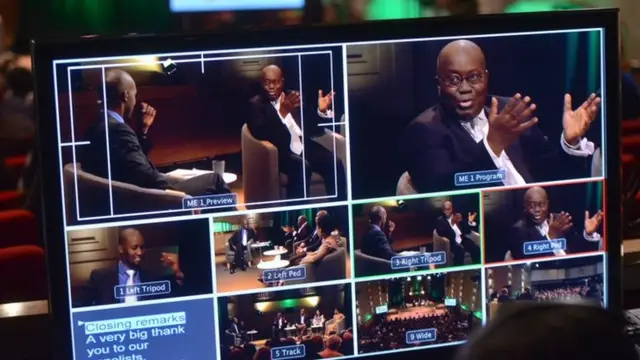
Some closing comments at the Africa democracy debate:
Robtel Neajai Pailey (Liberian): Diaspora Africans, when they go back, need a spirit of collaboration, not condescension.
Ayat Mneina (Libyan): People outside Africa should realise that building democracy is a long process.
The debate is now over.
Lewis Gordon emails: As human nature is flawed, so is democracy, but there is simply no alternative. We have to make it work, and to do that people have to accept that democracy is as much about submitting to the will of the majority (or its nearest equivalent) as it is getting their own way.
Social media has a vital role, says Libyan Ayat Mneina - it's difficult to silence, and gave young people a platform during the Libyan revolution.
How did the Magna Carta - "the Great Charter" - become, over the centuries, the basis and byword for the freedom, justice and democracy enjoyed by billions across the world? Explore the BBC's interactive guide.
Kev Leary in Sunderland, UK, emails: We can only have democracy while we are a secular country. As soon as any religious group claims to have rights above and beyond any other group in society some of us will be disenfranchised.
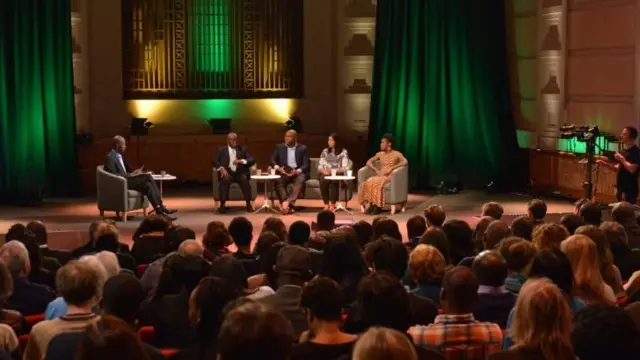
Jason Njoku highlights another problem in Nigeria: Those who come back from the West get elite status, but unfortunately it's difficult to find very well-educated people in Nigeria, as the education system has broken down, he says.
Georgina Harmsworth tweets, external: We need to picture economic equality if we want true democracy #BBCDemocracyDay
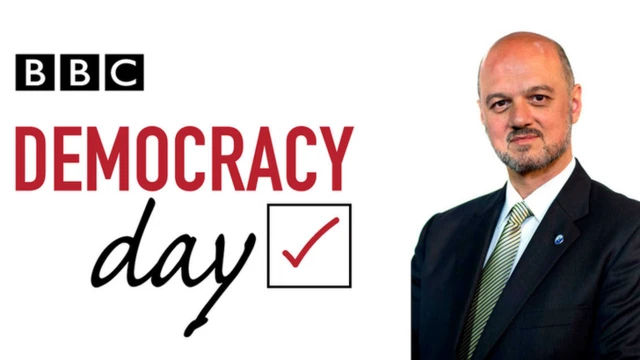
The BBC is hosting a multilingual Twitter Q&A on the topic "Has democracy failed the Arab world?" from 1200-1300 GMT. Join Anas Altikriti, chairman of the Muslim Association of Britain and president of the Cordoba Foundation think tank, as he asks for your opinions. Follow the @viabbc discussion here., external
Helen Fuller emails: Internet democracy is the biggest threat to traditional political systems and the greatest opportunity for humanity. But can the electorate be trusted to make the right decisions? Should internet voting be confined to TV reality shows or might we find that in a few years time everyone will be voting on line?
Liberian academic Robtel Neajai Pailey challenges Njoku's view of Rwanda: A lot of Rwandese abroad say President Kagame is a problem - people can't express dissent, she argues.
Susan Lodder emails: Democracy is not perfect but the alternative is unthinkable. Keep democracy alive and use your vote.
BBC Africa tweets, external Does Rwanda qualify as a democracy? @JasonNjoku thinks so. He praises the country's "leadership and long-term thinking".